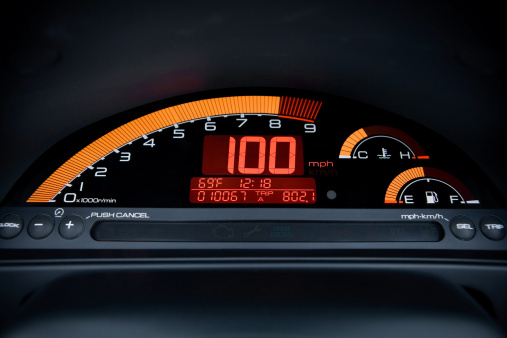April 27, 2023
HOW COLD TEMPERATURES AFFECT YOUR CAR
Cold temperatures can have a significant impact on your car’s performance and lifespan. Below are some ways that cold temperatures can affect your car:
- Battery: The battery in your car can lose its charge faster in cold temperatures. It’s important to make sure your battery is in good condition before winter hits.
- Engine oil: Cold temperatures can cause the engine oil to thicken, making it harder for the engine to turn over. This can cause damage to the engine over time. Using the correct viscosity oil for your vehicle and changing the oil regularly can help prevent this.
- Tires: Cold temperatures can cause the air in your tires to contract, leading to a decrease in tire pressure. It’s important to check your tire pressure regularly and keep it at the recommended level.
- Brakes: Cold temperatures can cause your brakes to become less responsive. It’s important to have your brakes checked regularly and replace them if necessary.
EFFECTIVE CAR MAINTENANCE TIPS TO COUNTER THIS
Here are some effective car maintenance tips to counter the effects of cold temperatures:
- Keep your car in a garage or covered area to protect it from the cold.
- Make sure your battery is in good condition and fully charged.
- Use the correct viscosity oil for your vehicle and change the oil regularly.
- Check your tire pressure regularly and keep it at the recommended level.
- Have your brakes checked regularly and replace them if necessary.
- Use a fuel additive to prevent fuel from freezing in the fuel lines.
- Use a windshield washer fluid that is rated for cold temperatures.
- Consider getting winter tires, which are designed to perform better in cold temperatures and provide better traction on snow and ice.
By following these tips, you can help prevent the negative effects of cold temperatures on your car and keep it running smoothly throughout the winter.

How do I stop my car from getting cold starts?
Cold starts are often caused by a variety of factors, such as a weak battery, a malfunctioning starter motor, or fuel delivery issues. Here are some tips to help prevent cold starts in your car:
- Keep your battery charged: Cold weather can cause your battery to lose its charge quickly. Make sure your battery is fully charged before starting your car, and consider using a battery tender or trickle charger to keep the battery charged during periods of inactivity.
- Use the correct viscosity oil: The oil in your car can thicken in cold temperatures, making it harder for the engine to turn over. Using the correct viscosity oil for your vehicle can help prevent this issue.
- Keep your fuel tank full: Keeping your fuel tank full can prevent condensation from forming in the tank, which can lead to fuel delivery issues and difficult starting.
- Use a block heater: A block heater is an electric heater that warms the engine block and helps reduce the strain on the battery and starter motor when starting your car in cold weather.
- Park in a warm location: If possible, park your car in a heated garage or other warm location to keep the engine and battery warm.
- Keep your spark plugs in good condition: Faulty spark plugs can cause difficult starting in cold weather. Make sure your spark plugs are in good condition and replace them if necessary.
- Consider getting a winter battery: Winter batteries are designed to perform better in cold weather and can provide better starting performance in low temperatures.
By following these tips, you can help prevent cold starts in your car and ensure that it starts smoothly even in cold weather conditions.
What temperature is bad for cars?
Extreme temperatures, both hot and cold, can be bad for cars. However, the specific temperature that is considered bad for cars can vary depending on a number of factors, including the type of vehicle, the condition of the vehicle, and the specific parts and components of the vehicle.
In general, extremely high temperatures, such as those over 100°F (38°C), can be bad for cars as they can cause damage to the engine, transmission, and other components. This is because high temperatures can cause fluids to break down more quickly and can put additional strain on the vehicle’s cooling system.
On the other hand, extremely low temperatures, such as those below 0°F (-18°C), can also be bad for cars. Cold temperatures can cause fluids to thicken, making it harder for the engine to turn over, and can cause batteries to lose their charge more quickly.
It’s important to note that different car manufacturers may have different recommendations for the specific temperature range that their vehicles can operate in safely. Therefore, it’s always a good idea to check your owner’s manual or consult with a qualified mechanic to determine the temperature range that is safe for your particular vehicle.
Does temperature affect engine performance?
In cold temperatures, the engine may take longer to warm up, and the oil in the engine may become thicker, which can make it harder for the engine to turn over. This can put additional strain on the battery, starter, and other components of the engine. Cold temperatures can also cause fuel to evaporate more slowly, which can affect how the engine runs.
In hot temperatures, the engine can become overheated, which can cause damage to the engine components. Additionally, the hot weather can cause the air to be less dense, which can reduce the amount of oxygen available for combustion, and this can affect engine performance.
It’s important to keep the engine operating within its recommended temperature range to ensure optimal performance and prevent damage. This can be achieved by keeping up with regular maintenance, using the correct oil and coolant, and monitoring the temperature gauge to ensure the engine is not overheating or running too cold.
